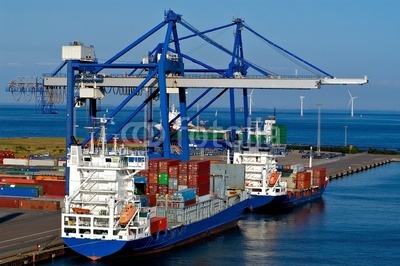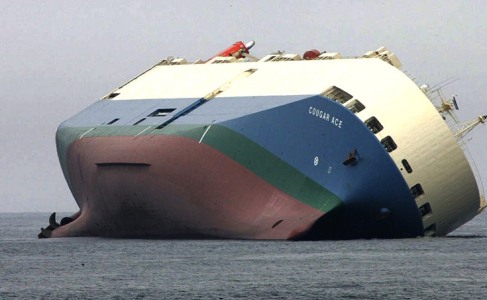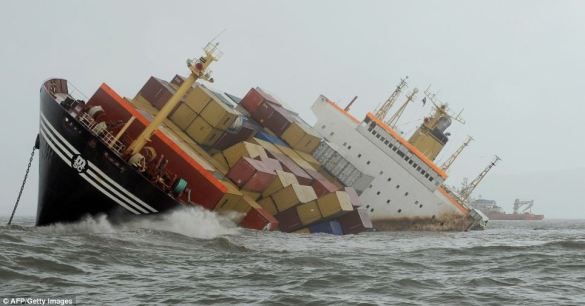Introduction
‘Piracy’ is defined as “any illegal act of violence, detention or depredation committed by the crew or passengers on board a ship traversing the high seas, typically involving international waters”.(1) Since early 2000 maritime piracy has become a major threat to safety in Nigerian waters(2) as different criminal groups have targeted ships, fishing trawlers and multinational oil company vessels. They force ships to stop and then attack the crew on board.(3) Crew members are robbed, assaulted or kidnapped for ransom,(4) and equipment on board the ship is stolen and sold on the black market. Thus, piracy and armed robbery at sea pose a substantial threat to maritime activities in Nigerian waters. A major step towards suppressing the threat of piracy is the creation of national enabling legislation,(5) incorporating provisions from international conventions such as the United Nations Convention on the Law of the Sea(6) and the Convention for the Suppression of Unlawful Acts against the Safety of Maritime Navigation,(7) which are vital to the fight against piracy and armed robbery at sea.(8)
Another important step is the establishment of regional agreements with some or all of the states in the Gulf of Guinea region,(9) provided that these states are willing to put their political and economic differences aside and work together.(10) Piracy is a crime under customary international law, which affects all countries. It can occur in a state’s territorial waters, neighbouring jurisdictions and on the high seas. Thus, it is up to all states to take reasonable steps to protect their territory.
Piracy bill
Until recently, piracy was not defined in NIgerian legislation. However, the Piracy and Other Unlawful Acts at Sea (and Other Related Offences) Act(11) is now before the National Assembly. This bill will give effect to the international conventions which have been ratified by Nigeria and provide legal backing to the fight against piracy and other criminal acts in Nigeria’s territorial waters. Under the bill, anyone found guilty of piracy is liable to be sentenced to up to 21 years’ imprisonment, a fine of up to N20 million ($125,000) or both. Anyone found guilty of an unlawful act at sea is liable to imprisonment for up to 15 years, a fine of N15 million ($ 93,750) or both.(12) This is one way of halting piracy within Nigeria’s waters.
Regional agreements
In situations where pirates start attacking from neighbouring states and then flee to those waters when pursued, law enforcement officials may find it hard to apprehend, prosecute and convict offenders. Thus, the next option is to identify the agreements and instruments which have been established to deal with piracy at the regional level. According to a report by the International Maritime Bureau (IMB), in the first nine months of 2006 there were 26 reported incidents of piracy and armed robbery off the western coast of Africa,(13) making it second only to the Malacca Straits as the most dangerous waters in the world.(14) The coastline of Nigeria’s oil-producing states and their inland waterways are at the heart of this peril.(15) According to the IMB, the security situation in the area costs the sub-region around $2 billion a year.(16) Due to continued maritime insecurity in the Gulf of Guinea, investors have shown little interest in the region’s potential as a profitable industry,(17) thereby hindering development of coastal shipping in the area.(18) The Maritime Organisation of West and Central Africa (MOWCA) is the regional cooperative agreement put in place to ensure efficiency, safety and security in the Gulf of Guinea.(19) MOWCA has created more policy objectives to improve the deteriorating piracy situation in the sub-region.(20) With regard to safety and security at sea, it organised an integrated sub-regional coastguard network(21) to implement conventions relating to the provision of security for passengers and cargo in the sub-region’s coastal waters against piracy, armed robbery and other unlawful acts at sea.(22) With regard to bilateral agreements, Nigeria and Benin Republic have set up a combined maritime patrol of their waters. Codenamed Operation Prosperity, this bilateral cooperation was the first of its kind in the region and is similar to MOWCA’s coastguard network.(23) A joint patrol with Ghana and Togo is expected in order to increase security and protect the region’s waters.(24)
Another effective method of ensuring that piracy is checked at a regional level is to get MOWCA to instruct its member states to submit their national piracy laws and regulations for endorsement; this would encourage member states to enact those laws.(25) If MOWCA encourages states to conclude bilateral agreements among themselves dealing with the pursuit of pirates, law enforcement officials will be able to follow perpetrators into neighbouring waters in order to apprehend them.(26) This will ultimately help Nigeria to control piracy and armed robbery both in and out of its territorial waters as an active member of MOWCA.
Major challenges
Sometimes the only way to solve a problem is to discover the fundamental cause of that problem. Therefore, it would be wise to investigate the origins of piracy in Nigeria. For example, there is overfishing in Nigeria’s waters by unlicensed fishing vessels from Japan, China and Europe, who exploit the marine environment and cost the West African region about $100 million a year in stolen fish,(27) while the people in one of the richest fishing areas of the world suffer from poverty and malnutrition.(28) Other fishers who unable to sail long distances in search of superior fishing grounds fall victim to poverty and desperation, leading them to survive by carrying out pirate attacks on unsuspecting sea merchants.(29) It is also believed that in some cases, “unemployed and desperate fishermen are recruited by organised crime gangs to attack or hijack merchant vessels”.(30) Many Nigerians live on less than $2 a day(31) and almost half the population is unemployed.(32) Those involved in piracy are often unemployed sailors and fishermen who have exhausted all other options.(33)
Thus, it is vital that the Nigerian government addresses the real problem of poverty and unemployment, especially in the coastal areas, as this is the major challenge facing the country’s waters.
For further information on this topic please contact Mojisola Agunbiade at Bloomfield by telephone (+234 1 791 0702), fax (+234 1 4960 4666) or email (moji.agunbiade@bloomfield-law.com).
Endnotes
(1) Definition by Churchill and Lowe in Pathak, Monica , “Maritime Violence Piracy at Sea & Marine Terrorism Today” Windsor Rev Legal & Soc Issues 65 2005 at 66. See also RR Churchill and AV Lowe, The Law of the Sea, 3rd ed (Manchester: Manchester University Press 1999 at 210.
(2) IMB, “ICC appeals for national protection against pirates”, November 7 2005, http://www.icc-ccs.org/index.
(3) Ibid.
(4) IMB, “IMB piracy report notes decline in piracy”, April 24 2007, http://www.icc-ccs.org/index.
(5) “Akhigbe wants maritime security law in Nigeria”, The Tide Online, May 1 2008. Available at http://www.thetidenews.com.
(6) United Nations Convention on the Law of the Sea 1982, available at http://www.imo.org.
(7) Convention for the Suppression of Unlawful Acts against the Safety of Maritime Navigation 1988, available at http://www.imo.org.
(8) Robert Beckman, “Combating Piracy and Armed Robbery against Ships in Southeast Asia: The Way Forward” at 319. Available at http://www.southchinasea.org/docs/Beckman.
(9) Von Gagern, Security Council Report United Kingdom of Great Britain and Northern Ireland. Available at http://www.zzc.com.
(10) McFarlane, John, “Regional and International Cooperation in Taking Transnational Crime Terrorism and the Problems of Disrupted states” JFC 2005, 12(4), 301-309 at 304. See also NIMASA, “Summary of discussions and recommendations of procedural workgroup of the conference on piracy and armed robbery at sea”, available at http://www.nimasa.gov.ng/confrence-piracy-paper.
(11) Rasheed Bisiriyu, “NIMASA proposes anti-piracy bill”, available at http://www.punchng.com.
(12) The Piracy and Other Unlawful Acts at Sea (And Other Related Offences) Bill.
(13) Ameachi Chibuike, “Fundamental causes of maritime insecurity”, The Tide Online May 2008. Available at http://www.legaloil.com.
(14) Ibid.
(15) Ibid.
(16) Freedom C Onuoha, “Piracy and Maritime Security in the Gulf of Guinea”, available at http://www.studies.aljezeera.net. See also Raymond Gilpin, “Enhancing Maritime Security in the Gulf of Guinea: Strategic insights, Volume VI Issue 1 January 2007. Center for Contemporary Conflict”, available at http://www.ccc.edu.
(17) Ibid.
(18) Ibid
(19) Maritime Organisation of West and Central Africa, http://www.mowca.org.
(20) Ibid.
(21) Ibid.
(22) Ibid.
(23) Supra at 16.
(24) Freedom C Onuoha, “Piracy and Maritime Security in the Gulf of Guinea”, available at http://www.studies.aljezeera.net.
(25) Association of Southeast Asian Nations, “Overview”, available at http://www.aseansec.org/5616.htm.
(26) Ibid.
(27) “Robbing West Africa”, Greenpeace, available at http://www.greenpeace.org/international/campaigns.
(28) Ibid.
(29) Liss, Carolin, “The roots of piracy in Southeast Asia”, research paper conducted for 2006 PhD thesis. Available at http://www.globalcollab.org/Nautilus.
(30) Ibid.
(31) Ibid.
(32) “Robbing West Africa”, Greenpeace, available at http://www.greenpeace.org/international/campaigns.
(33) Ibid.






